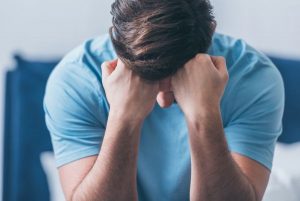 There are several non-prescription methods for treating anxiety. Of course, a doctor will have to evaluate each patient on a case-by-case basis to see what type of treatment is appropriate, but whipping out the prescription pad isn’t the only way to treat anxiety.
There are several non-prescription methods for treating anxiety. Of course, a doctor will have to evaluate each patient on a case-by-case basis to see what type of treatment is appropriate, but whipping out the prescription pad isn’t the only way to treat anxiety.
Non-Prescription Therapies to Treat Anxiety
1 – Check For Deficiencies
Anxiety may be caused, or at least contributed to, by dietary deficiencies, and we can test to see if this is the case. For example, a zinc deficiency may contribute to panic disorder or OCD. B vitamin deficiencies have a relationship to anxiety, and many patients feel better when properly supplemented with the right forms of these vitamins. There are several other deficiencies that can be tested for – so trying to identify the root issues is always worthwhile before resorting to medications which may have unpleasant or even dangerous side effects.
2 – Use Genetic Testing To Find Root Causes
Another type of testing for the root causes of anxiety is genetic testing. A genetic mutation such as MTHFR, when expressed, can trigger anxiety symptoms. Treatment with dietary changes and supporting nutrients can provide significant relief.
3 – Supplements
I mentioned vitamin and mineral supplements above. Common deficiencies with a relationship to anxiety include zinc, magnesium, B vitamins (particularly B6 and B12), inositol and vitamin D. Many patients have tried supplementing these vitamins on their own, but unfortunately, have tried cheaply-produced drugstore brands where the vitamin is synthetic and not very biologically available to the body. That leads them to think supplements don’t work, when truly, they’ve never tried the right ones.
“Folic acid costs supplement companies about $5/kg.
MTHF costs about $12,000/kg.
There’s your answer why they don’t switch from garbage folic acid.
If they did, their profit margins go down or their prices would go up or both.
You get what you pay for.”
– Dr. Ben Lynch
Other non-vitamin supplements such as L-Theanine, Tryptophan, Holy Basil, chamomile, kava, and omega-3 fatty acids are also effective for some people.
4 – Meditation, Mindfulness and Relaxation Techniques
Learning meditation, mindfulness, and structured relaxation techniques works. Training in mindfulness and simple, quick forms of meditation provides relief to many who are struggling with stress and anxiety. Try the sample meditation in this video from 6:23:
5 – Acupuncture
While it may seem (if you’ve never tried acupuncture) that being stuck with needles wouldn’t exactly relax you, in fact, many patients comment on how relaxed they are after their session. Relaxation, stress and anxiety relief are results that acupuncture has been bringing for thousands of years. If you’ve never tried it, I encourage you to book a session and check it out. Our Hong Kong clinic offers acupuncture, of course. If you’re not in our area, find a reputable practitioner and give yourself the gift of a session.
6 – Avoiding Triggers
Of course, we know there are situations and challenges in life that trigger anxiety, and a good therapist can help you with those. We have several in our clinic. But did you know there are also dietary triggers for anxiety? And we’re not just talking caffeine here. A study in 2005 found that sodium benzoate, a preservative found in some processed food and very common in processed junk food such as soda, can trigger anxiety.
This isn’t even a comprehensive list of ways to avoid prescription drugs while treating anxiety, just some of the methods we’ve found effective here in our Hong Kong Integrative Clinic. There are a number of talk therapies, DBT, exposure therapy, CBD and so many more options. If you’re struggling with anxiety in Hong Kong, please make an appointment today by calling (+852) 2523 8044.

